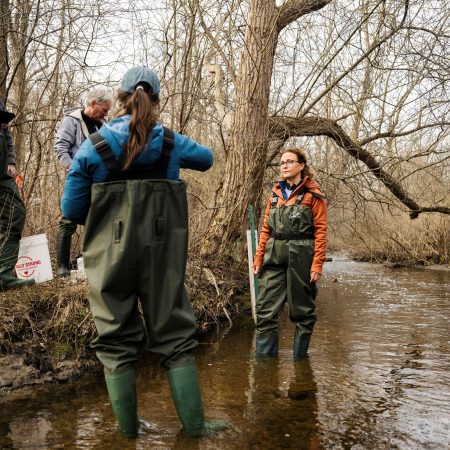The Metro: How healthy is the Huron River?
The Huron River is one of the most prominent in our state, and 650,000 people live in the watershed. But you can’t eat fish from the Huron River. After years of unregulated industry, dumping and pollution, PFAS, also known as ‘forever chemicals’ are part of the Huron.
There’s also a toxic Dioxane bloom moving through groundwater towards the Huron River—the source of drinking water for Ann Arbor.
But it’s not all doom and gloom. Awareness about PFAS is increasing, and so are the solutions that can improve river health. Some are policies being introduced at the state level, like so-called “Polluter Pay Laws” introduced by Michigan Democrats and supported by environmental organizations.
On Wednesday, November 12, the Huron River Watershed Council will host a one-day conference, “State of the Huron” to discuss the health of the Huron River and chart its next chapter.
Rebecca Esselman, Executive Director of the Huron River Watershed Council, joined the Metro to talk about the present and future health of the Huron River.
Listen to The Metro weekdays from 10 a.m. to noon ET on 101.9 FM and streaming on demand.
Subscribe to The Metro on Apple Podcasts, Spotify, NPR.org or wherever you get your podcasts.
Trusted, accurate, up-to-date.
WDET strives to make our journalism accessible to everyone. As a public media institution, we maintain our journalistic integrity through independent support from readers like you. If you value WDET as your source of news, music and conversation, please make a gift today.Donate today »
The post The Metro: How healthy is the Huron River? appeared first on WDET 101.9 FM.



